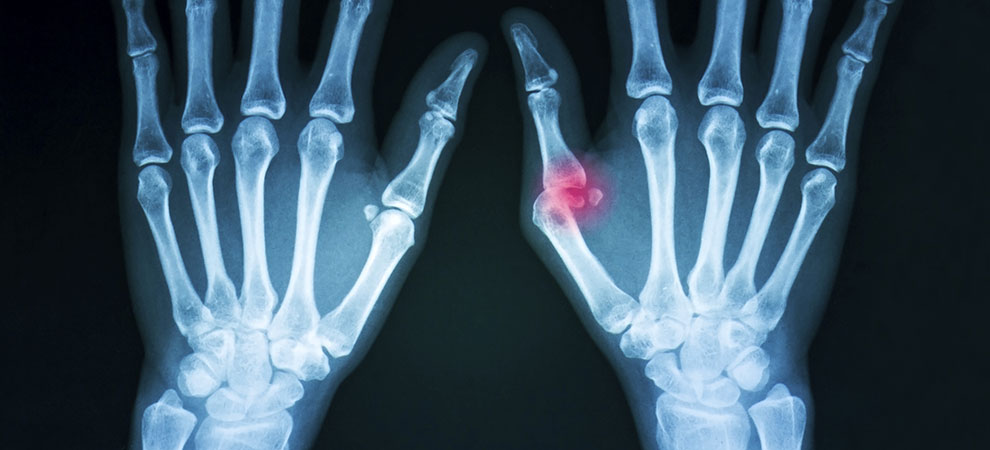Basal Joint Arthritis

Basal Joint arthritis is one of the most common hand maladies in America.
Differing surveys indicate that as much as 1 in every 3 females is affected, and 1 in every 5 males.
It has several causes:
- Degenerative wear of cartilages - In almost all adults who reach middle age, there is a notable decrease in the ability to re-form cartilage as it wears down. As this progresses, eventually bone will rub against bone and inflammation develops.
- Overuse of the thumb - Although people can respond differently, many years of strenuous use of the thumb can hasten wear of the cartilage, as well as weaken the supporting structures making the joint unstable and even more predisposed to inflammation and pain
- Auto-immune - Rheumatoid arthritis can attack numerous joints, including the thumb. Although other joints are more commonly affected, the change in stability of the other joints in the thumb will lead to additional stress to the basal joint, ultimately making it wear down of lose stability.
- Injury - 1 out of every 10 patients with a fracture of the bone involving a joint surface will ultimately develop arthritis in the joint. Since the thumb is used for almost all hand activities, it is especially exposed to trauma. Injury to the ligaments may go unnoticed for years, resulting in a slow loss of stability and abnormal wear on the cartilages.
Treatment has traditionally been dependent on stages of destruction. Different stages are given to findings on x-ray, including loss of cartilage thickness, sclerosis or opacity of the bone beneath the cartilage, the presence of spurs, or growth of calcium and boney deposits in the joint capsule and on the joint surfaces, cysts in the bone adjacent to the joint surfaces, and loss of stability with dorsal displacement of the bones of the joint.
At the Thumb Specialty Center, we have adopted a treatment plan that applies to all patients regardless of the stages of destruction. We have found that patients with severely advanced radiologic stages can actually be using their thumbs well and be pain free. It is senseless to perform surgery on these people if they have adapted and the disorder is not affecting their quality of life. Indeed surgery could possibly convert from pain-free thumb- that the patient is used to – to a painful post-surgical result.
Regardless of x ray findings, if a patient is suffering from pain, a conservative approach is begun by counselling the patient on medication and dietary changes that can help reduce inflammation and pain.
Even though supplements such as glucosamine, turmeric, Chondroitin sulfate and MSM have mixed success, we have found that appropriate dosages can be very helpful in many patients.
If the pain is prohibitive of normal activities we offer an injection of steroid solution into the joint space. This can be extremely effective for long periods of time. We follow up with all patients at 6 weeks after the injections. If there is still some residual pain, we will offer a second injection, and even repeat it several more times over the year depending on the length and degree of pain relief.
By adopting the rule that steroid injections are ceased once they are not showing clear improvement from one visit to the next, we have found that patients can have as many as 6 or more injections over a year without complications or effect on the outcome of surgery at a later time.
Since our method of joint reconstruction uses a tendon graft from another area, and does not involve drilling holes into the bone, we have seen excellent long term results from surgery regardless of the number of previous injections.
Over the past 20 years, a collaborative effort was undertaken by Dr. Coleman and Dr. Miguel Saldana, a former partner, to devise a method of basal joint arthroplasty that has proven to have results that are superior to the old established “LRTI” (ligament reconstruction with tendon interposition) that is been accepted as dogma by many orthopedists. It is effective and applicable in almost all cases of basal joint arthritis. Dr. Coleman has developed a statewide reputation because of the results of patients from many different cities in Texas.
